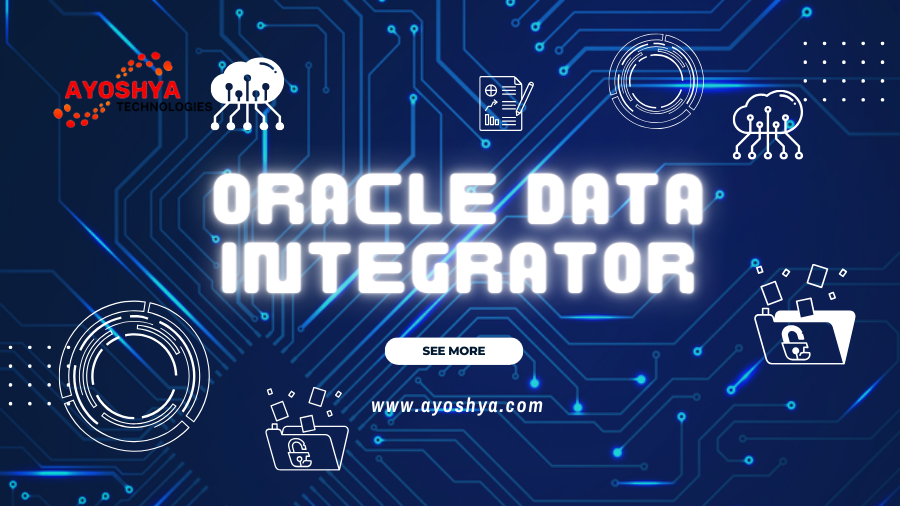Oracle Data Integrator: Unleashing the Power of Seamless Data Integration
In the era of data-driven decision-making, businesses require robust solutions that can seamlessly integrate data from diverse sources. Oracle Data Integrator (ODI) emerges as a powerful tool, offering a comprehensive solution to the intricate challenges of data integration.
Introduction
Oracle Data Integrator is a sophisticated ETL (Extract, Transform, Load) tool designed to facilitate efficient data integration processes. In a world where data is generated at an unprecedented rate, ODI plays a pivotal role in ensuring that businesses can harness the full potential of their data.
Understanding Oracle Data Integrator
At its core, Oracle Data Integrator is all about making data integration simple and effective. It goes beyond the basics of ETL, providing a platform where data from various sources can be seamlessly integrated, transformed, and loaded into the target systems. The agility and adaptability of ODI make it a valuable asset for businesses dealing with complex data ecosystems.
Benefits of Oracle Data Integrator
- Streamlining ETL Processes: ODI simplifies the ETL processes, reducing the time and effort required to move and transform data.
- Enhancing Data Accuracy and Timeliness: By providing real-time data integration capabilities, ODI ensures that decision-makers have access to accurate and timely information.
- Cost-effective Solutions: ODI offers a cost-effective approach to data integration, minimizing the need for extensive manual intervention and reducing the risk of errors.
Key Features
The success of Oracle Data Integrator lies in its rich set of features. From declarative design to knowledge modules, each feature contributes to the efficiency and effectiveness of data integration.
Real-world Applications
To truly understand the impact of it, one needs to look at its real-world applications. Through case studies, businesses across various industries showcase how ODI has transformed their data integration processes, leading to improved efficiency and better decision-making.
Challenges and Solutions
Data integration is not without its challenges, but it addresses these head-on. Whether it’s dealing with disparate data formats or ensuring smooth integration with legacy systems, ODI provides solutions to overcome these challenges.
Best Practices for Implementation
For businesses embarking on their data integration journey, adhering to best practices is crucial. This section provides valuable insights, offering tips for a smooth implementation process and highlighting common pitfalls to avoid.
Future Trends
As technology evolves, so does data integration. It stays ahead of the curve, aligning with emerging trends such as cloud integration, data virtualization, and machine learning. Oracle’s commitment to innovation ensures that ODI remains a future-proof solution for businesses.
User Testimonials
The true measure of a solution’s effectiveness lies in the experiences of its users. Insights from businesses that have implemented it provides readers with real-world perspectives on the benefits and transformative power of ODI.
Comparisons with Competitors
In a market filled with data integration solutions, It stands out. A brief comparison highlights its unique strengths, showcasing why businesses choose ODI over other alternatives.
Security Measures
In an age where data security is paramount, It prioritizes the protection of sensitive information. Robust security features, including encryption and access controls, ensure that data remains secure throughout the integration process.
Pricing Models
Understanding the cost implications of a data integration solution is essential for businesses. This section breaks down Oracle Data Integrator’s pricing models, offering transparency and helping businesses make informed decisions based on their specific needs and budget.
Step-by-step Implementation Guide
To assist readers in harnessing the power of Oracle Data Integrator, a step-by-step guide provides clear instructions. From initial setup to ongoing monitoring, this guide serves as a valuable resource for those embarking on their data integration journey.
Frequently Asked Questions (FAQs)
- Is Oracle Data Integrator suitable for small businesses?
- Absolutely. It caters to businesses of all sizes, offering scalable solutions tailored to individual needs.
- How does Oracle Data Integrator handle real-time data integration?
- ODI is equipped with features that enable real-time data integration, ensuring that businesses can make decisions based on the latest information.
- Can Oracle Data Integrator integrate with cloud-based systems?
- Yes, It supports cloud integration, allowing businesses to seamlessly integrate data from on-premises and cloud sources.
- What industries benefit the most from Oracle Data Integrator?
- Industries such as finance, retail, and healthcare have witnessed significant benefits from Oracle Data Integrator due to its versatility and adaptability.
- Is technical expertise required for implementing Oracle Data Integrator?
- While a basic understanding of data integration is beneficial, Oracle provides user-friendly tools, making implementation accessible to users with varying technical backgrounds.
Conclusion
In conclusion, It emerges as a catalyst for businesses aiming to unlock the full potential of their data. Its agility, robust features, and future-ready design position it as a cornerstone in the realm of data integration. Embrace the power of seamless data integration with Oracle Data Integrator and pave the way for data-driven success.
Read More:



